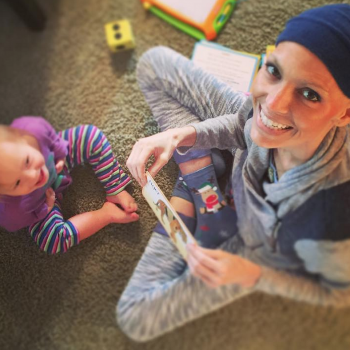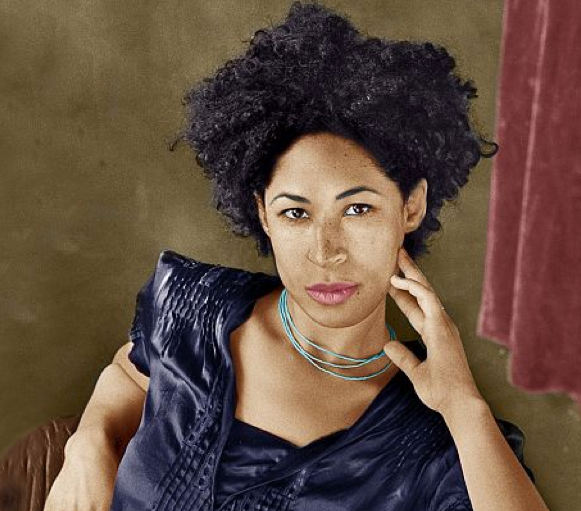I finally read Anne-Marie Slaughter’s much-discussed article declaring that “women still can’t have it all.” I found it to be thoughtful, interesting, honest — but suffering from a philosophical flaw, one that has little to do with the politics of gender and everything to do without our view of the world and our place in it. To put it bluntly, how would Dean Slaughter’s analysis change if she knew that the job that she loved so very much was truly not that significant?
To be clear, I’m not insulting her accomplishments. She’s achieved quite a bit in her career (far, far more than I have in mine), and she worked in the upper stratosphere of the world’s most powerful government. But even then, her career was just not that important. Interesting? I’m sure. Exciting? Of course. But important? Not really.
Having moved back and forth between the Northeast (Boston, New York, Philly) and the Southeast (Georgetown, Kentucky, and Columbia, Tenn., where I live now) I’m often struck by the extent to which bicoastal professionals are convinced of their own importance and how they so often use words like “indispensable,” “crucial,” and “vital” to describe their work. Unlike even the professionals one encounters here in Tennessee, they emphasize becoming “change agents” and ponder the impact they have on “social justice.” I’ve been guilty of that myself. I’ve convinced myself that my work was vitally important — and the stakes were so very high — as I jetted around the country to speeches, court hearings, and (endless) meetings.
All that changed in the late evening hours of November 22, 2007, in a moment of blinding clarity while sitting in the back of a Chinook helicopter flying over Diyala, Iraq. As I looked past the door gunner to see fires burning in the distance and the arc of tracer fire in the air, I keenly realized that I was, quite simply, nobody. My helicopter could go down, my Humvee could explode, and General Petraeus wouldn’t call off the surge. Taps would play, the flags in Columbia would fly at half mast, and one more gravestone would join hundreds of others in our church cemetery, but aside from a link to a news story or two and occasional fond remembrances from friends, I would be less than a whisper in the wind of history.
Not to my family, however. For them, my loss would change everything. That’s when I realized a fundamental truth — a truth we’d all do well to remember: We can have (at best) a small amount of influence over a large number of people, but we will only have a large amount of influence over a small number of people.
Even a person of Dean Slaughter’s stature can leave the State Department, and the wheels of government move on. While she is a unique child of God, she’d probably concede that the person who replaced her is of comparable ability. But she is irreplaceable in the hearts of her husband and children. Properly understood, does this not change the moral equation? Doesn’t the “having it all” lifestyle question change from “Why can’t I do my important, fulfilling work, and also properly parent my kids?” to “Should I forego properly parenting my kids for the sake of work that is unimportant but personally enjoyable?”
In Judeo-Christian tradition, the relevant question relates to our calling, to our duty, not to our ambition and personal fulfillment. For some, our call places us on the battlefield, where a nameless (to us today) young private bleeding on Little Round Top did greater things for his country than I will likely ever do over the entire course of my life. For others, the call places them in a firehouse, at a PTA meeting, in a cubicle, or — yes — sometimes in the highest reaches of government. But for all of us the call remains to faithfulness and care for our families, the people whom we influence the most.
I used to think I could be important, and ordered my life accordingly. Now I realize I’m not and try my best to simply know, understand, and do my duty. Dean Slaughter concludes her article by envisioning the ideal, how in that ideal world “we will properly focus on how we can help all Americans have healthy, happy, productive lives, valuing the people they love as much as the success they seek.” I’d say as spouses and parents we should strive toward different goals, where we focus on fulfilling our deepest and most meaningful obligations — to the God who created us, to those we’ve sworn (through marriage) to love, and to those we’re called to raise from their birth or adoption.
You might also enjoy:
- Are We a Nation of Cowards?
- Dealing with Cultural Problems: Six Inches at a Time
- Romney/Swanson 2012
- The Most Deceptive Tax Increase in American History
Connect with me further by:










